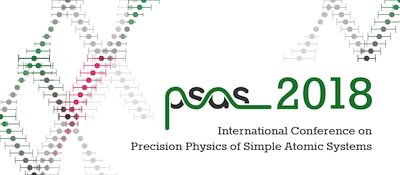Speaker
Description
Positronium is an excellent system to test bound state QED theory to very high precision, since it is almost exlusively governed by the electromagnetic force and does not exhibit the finite size effects which plague measurements of protonic atoms.
Numerous precise experiments have therefore been conducted in the past to measure the hyperfine splitting of Positronium. However, these experiments show almost 4$\sigma$ disagreement with the most recent bound state QED calculations. PHySES' approach is to eliminate several possible sources of systematics present in earlier experiments by a novel experimental design to conclusively check this discrepancy.
Furthermore, measuring the 1s2s transition in Positronium would allow for a very stringent test of bound state QED in the ppb range. Current efforts to reach this sensitivity include upgrades to a pulsed positron beam and a novel time-of-flight detection scheme involving rydberg excitation of excited positronium.
Additionally, by comparing theory to experimental values gained by these experiments, one can test CPT and Lorentz violating effects and their corresponding coefficients in the Standard-Model extension (SME) complementary to those gathered by hydrogen spectroscopy.
This talk will report on the design, implementation, current status and future prospects of ongoing efforts at ETH Zurich to measure the 1s-2s and excited state hyperfine splitting in Positronium.
